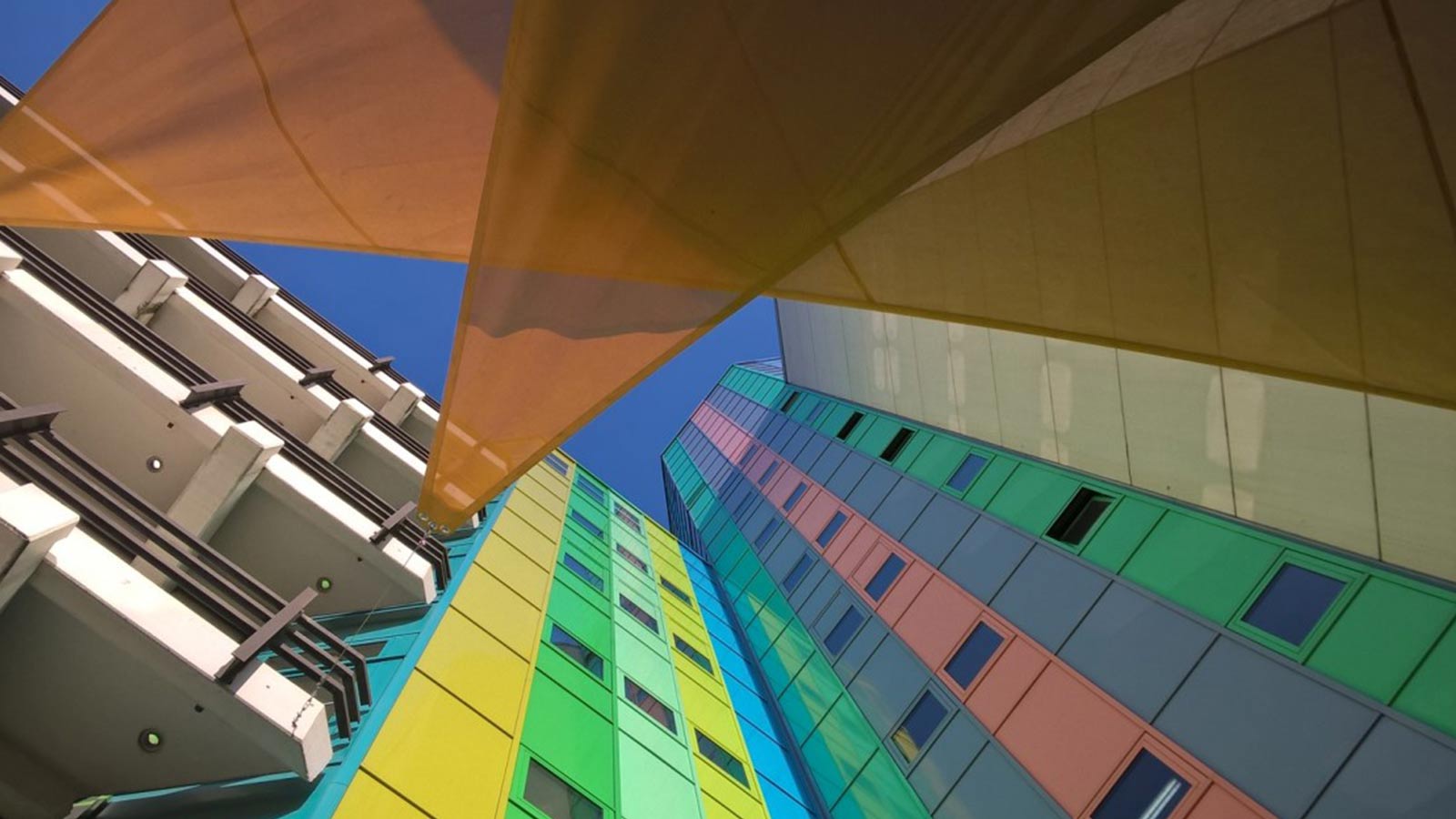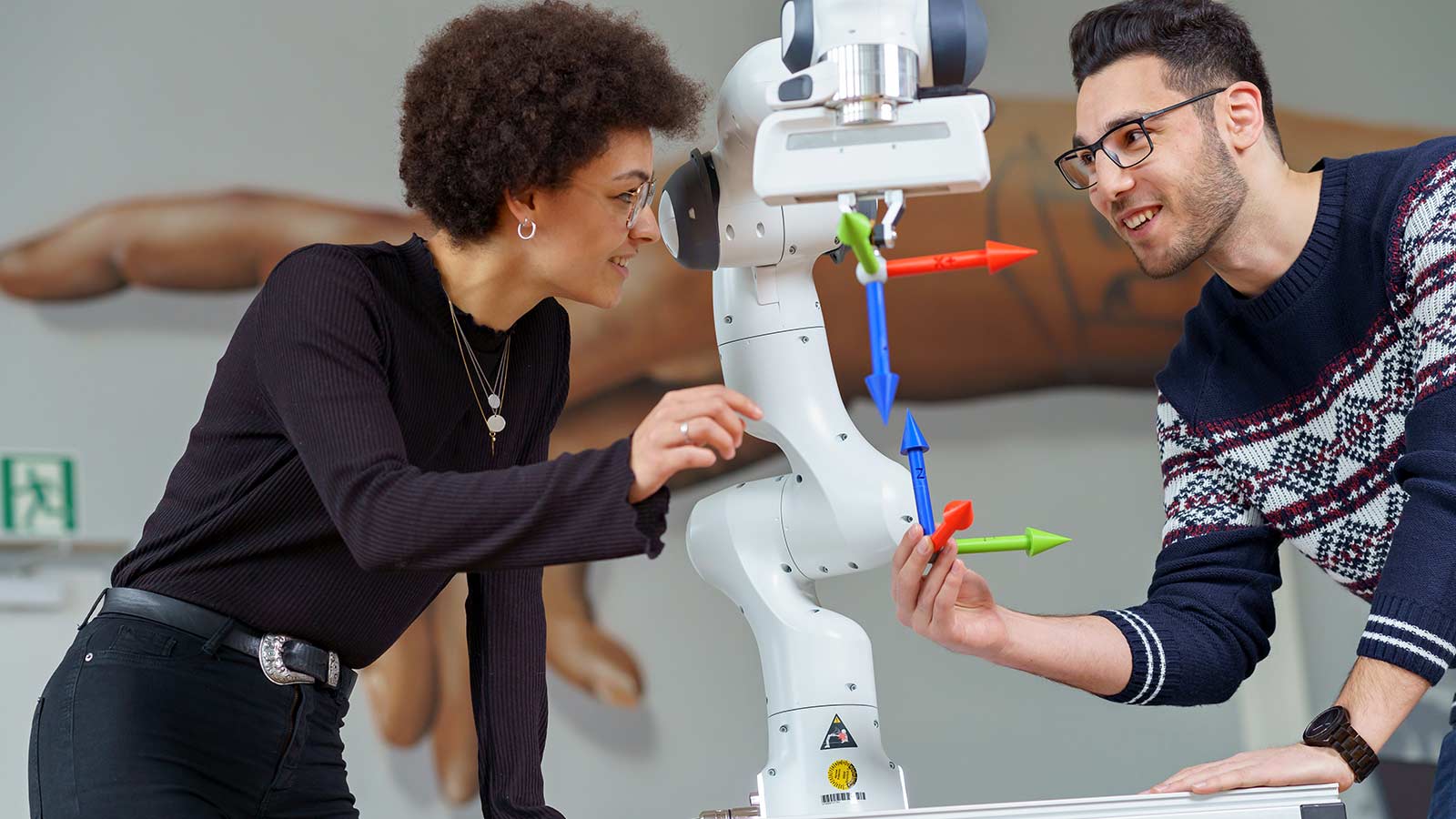
A total of 17 colleges and 5 universities, as well as renowned research institutes, make the Ruhr region a center of higher education in the German state of North Rhine-Westphalia – and a place where the world’s future is taking shape.
The Ruhr region plays a key role in the research landscape not just in North Rhine-Westphalia but also in Germany as a whole, featuring a unique set of conditions that foster and nurture scientists, students, and those who simply want to shape the future.
Unparalleled Density of Institutions of Higher Education
With 17 colleges and 5 universities, the Ruhr region offers more tertiary educational institutions than any other German metropolitan area.
Number of Students
The Ruhr region hosts 49 students per 1,000 inhabitants, a ratio that exceeds that of every other metropolitan region in Germany.
Research outside the University Setting
Renowned research institutes complement the scientific landscape in the Ruhr region. Three institutes of the Max Planck Society, five Fraunhofer institutes, four institutes of the Leibniz Association, and numerous other institutions do groundbreaking research in fields ranging from hydrogen and specialty chemicals to environmental technology and logistics.
A Robust STEM Sector
The Metropolis Ruhr is a hotbed of young talent, particularly in the areas of science, technology, engineering, and mathematics, popularly known as STEM. There are nearly as many young people studying STEM subjects in the Ruhr metropolitan region as there are in the specialized locations of Munich and Stuttgart.
An Outstanding Location for Networking
A key quality of the Ruhr region as a location is the proximity of its science and research institutions to each another. The large number of university networks demonstrates that close relationships are cultivated in terms of not only proximity but also substance. There is also close cooperation with the local business community. Here, research is not some quiet activity pursued in remote solitude; the Ruhr metropolitan region stands for a research landscape that is highly interconnected and geared toward practical implementation.
Which colleges and universities are located in the Ruhr metropolitan region and what they specialize in: here you will find an overview of all 17 colleges and 5 universities located in the Metropolis Ruhr.

Blazing a Trail Together
The Ruhr metropolitan region is on its way to becoming the world’s most environmentally friendly industrial region. Local industry is seeking to become climate-neutral by 2050 at the latest and is pursuing innovative solutions for bringing about this transformation. Examples of this would be the future production of "green" steel on the basis of hydrogen as a fuel as well as the development of key components of essential vaccines by producers of specialty chemicals.
In recent decades, Germany’s densest university landscape has grown up among neighborhood parks and reclaimed parcels of land that now serve as local recreation areas. Flanked by renowned research institutes, together they are developing innovative ideas for the city of the future, not to mention offering a wide range of opportunities for specialists, scientists, and students to help shape this future.
New Green Jobs
The Ruhr metropolitan region is a place where the future will take shape. A place where industry is making production climate-neutral and jobs for a climate-friendly future are being created. We present some of them here.
Cover: PhycoSystems



